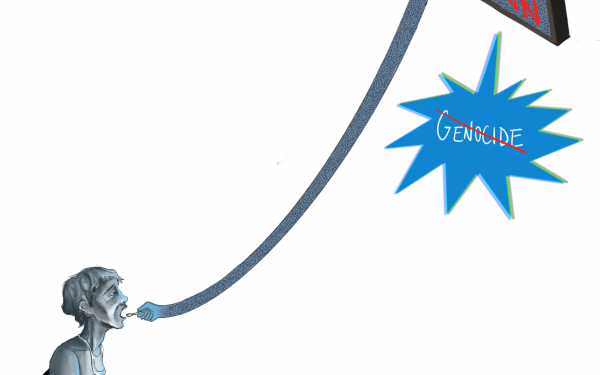The innate politics of literature
Writing has a natural ability to impact political beliefs
All writing has the capacity for influence, yet the degree to which a person is impacted varies greatly.
Readers may observe and interpret them uniquely, but there is always intention woven into the author’s words.
Some may find a book to be profoundly meaningful and representative of their worldview, while others remain unmoved.
The faltering distinction between fiction and nonfiction, as writer Mohsin Hamid notes in his New York Times article “Does Fiction Have the Power to Sway Politics?”, is undeniable. Hamid explains how fabricated political writings claiming to be nonfiction are immensely powerful over people’s interactions with and perceptions of one another. For example, “The Protocols of the Elders of Zion,” a manufactured document published in Imperial Russia in 1903, detailed the plans of a non-existent body of Jewish elders to control world politics, the economy, media, education and more. This notable piece of propaganda fuelled European antisemitism in the decades before the Holocaust, despite being exposed as fraudulent in 1921 by British newspaper The Times, and in 1924 by German newspaper Frankfurter Zeitung.
Additionally, Hamid highlights the significant political influence of self-admitted fiction, providing the 1852 anti-slavery novel Uncle Tom’s Cabin by Harriet Beecher Stowe as an example. The text examined the unjust treatment of humans as property and challenged the dominant American cultural beliefs about the emotional, physical and intellectual capacities of Black people. Her novel strengthened resistance to slavery and is said to have helped enable the war resulting in its abolition.
Both writings shaped understandings of the world and its population. While one fostered empathy and humanization, the other instigated discriminatory beliefs and hateful inclinations. In both cases, however, the presumed intentions of the authors prevailed.
“We all write in reaction to something,” states Helon Habila, author of the 2019 novel Travelers, in an interview with writer and professor Kenechi Uzor. “I think the best, and the most relevant writing, is always an act of protest. A refusal to keep quiet in the face of whatever seeks to dehumanize us.”
In a climate of such conspicuous politicization of humanity and agency, the very act of writing is a political endeavour. Habila goes on to explain the long history of protest writing in Africa and other former colonies, emphasizing the effectiveness of language as a tool with which humans can express themselves.
Words are powerful and dynamic instruments that motivate creation and, as stated in a Morehouse College article, “Writings can be used to shape conversations in times of change and crisis.” Literature as a form of protest reflects and humanizes the world’s grievances through stories and characters that readers resonate with while also bringing forth hope that inspires action. In acts of resistance, authors harness the power of words to address inequality, spark conversations and encourage empathy.
Across the United States, books have been banned from libraries and school curriculums to limit youth access to narratives deemed “inappropriate” or “offensive” by parents, school districts, state officials and other community members. In the 2023-2024 academic year, PEN America recorded 10,046 instances of book bans in 29 states and 220 public school districts. These bans include titles such as The Handmaid’s Tale by Margaret Atwood, The Hunger Games trilogy by Suzanne Collins, The Color Purple by Alice Walker and many more.
As illustrated by journalist Elizabeth Yuko in Reader’s Digest, this censorship is about controlling access to education, specifically regarding the US’s history of discrimination and the experiences of marginalized peoples. In other words, the government seeks to mitigate the spread of political ideas misaligned with their own.
The intensity with which the US government aims to control and regulate books accentuates the political influence of literature. But despite limited accessibility, reaching even a handful of people is enough to set change in motion.
This article originally appeared in Volume 45, Issue 7, published January 14, 2025.






_(1)_600_375_s_c1.png)
